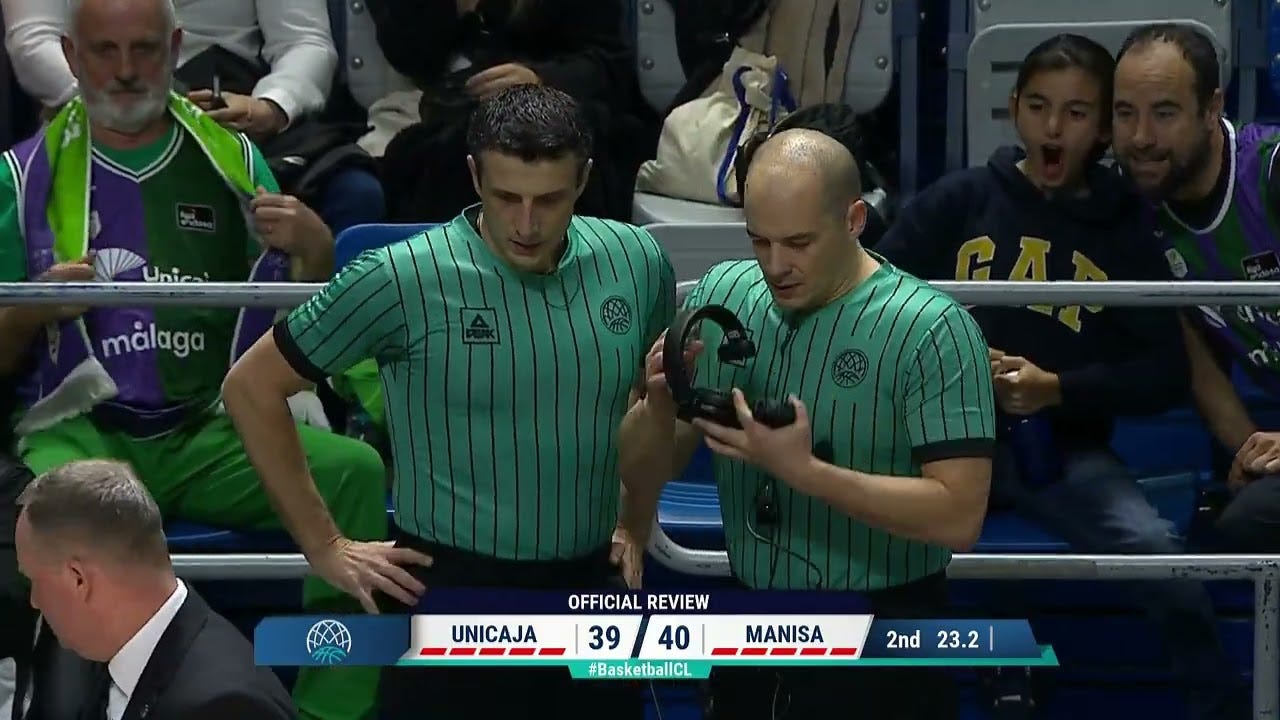IRS in Basketball Officiating: Friend or Foe?
Basketball is a game of split-second decisions, both for players on the court and referees officiating from the sidelines. With the speed and intensity of modern basketball, even the most experienced referees can face challenging situations where the difference between a correct and incorrect call is razor-thin. And then comes the Instant Replay System (IRS)—a technological tool designed to assist referees in making accurate decisions during critical moments. But as helpful as IRS can be, it also raises questions. Is it truly a referee's best friend, or does it sometimes create more problems than it solves?
Let’s dive into the role of IRS in basketball officiating and explore whether it’s a friend, a foe, or a bit of both.
The Rise of IRS in Basketball
The introduction of IRS in basketball was a game-changer. Designed to aid referees in reviewing specific situations, such as last-second shots, out-of-bounds plays, or potential flagrant fouls, IRS aimed to bring more fairness and precision to the game. Its implementation responded to calls for increased accuracy in officiating, particularly in high-stakes games and crunch-time moments.
Over time, IRS has evolved, becoming a staple in leagues like the NBA, Euroleage, FIBA competitions, and even domestic leagues across the globe. With its widespread adoption, IRS has carved out a unique role in basketball officiating. However, along with its benefits also come challenges that every referee must navigate.
When IRS is a Referee’s Best Friend
There’s no denying the transformative impact IRS has had on basketball officiating. Here are some of the ways it’s become an invaluable ally for referees:
Enhancing Decision Accuracy
In crucial moments—such as determining whether a buzzer-beater was released in time or whether a foul occurred before or after the shot clock expired—IRS ensures decisions are based on evidence, not guesswork. These reviews can be the difference between a team advancing to the next round or heading home.
Building Credibility and Transparency
IRS provides a layer of objectivity to officiating decisions. By allowing fans, players, and coaches to see the process behind critical calls, it builds trust and backs up the idea that referees are genuinely trying to be fair.
Easing the Pressure on Referees:
In high-stakes games, referees know the weight of their decisions. IRS offers a safety net, giving them an opportunity to double-check calls in high-pressure moments and ensuring that justice is served on the court.
But Is IRS Always a Friend?
While IRS offers undeniable advantages, it’s not without its challenges. Here’s where its role as a "friend" becomes more complicated:
Disrupting the Flow of the Game
Basketball is known for its fast pace, and interruptions for IRS reviews can disrupt the rhythm, leaving players, fans, and even referees frustrated. Dragging out reviews can really take the fun out of the game.
With IRS as a safety net, there’s a risk of referees second-guessing their instincts. Over time, this reliance can erode confidence in making real-time decisions and also kill the whole vibe in the arena.
All competitions are trying to reduce the time spent at the screen. In FIBA there are certain rules that referees can use IRS. In the Euroleague, they had a wide range of incidents they could check—almost everything. However, this year they imposed some limits on what and when referees can review. Despite this, there are still many critics regarding the time spent at the screen. In the NBA, a dedicated video center assigns referees to assist on-court officials in reviewing situations.
Subjectivity in Interpretation
Even with video evidence, certain calls remain open to interpretation. What may seem like a clear flagrant foul to one referee might appear as incidental contact to another. IRS can provide the footage, but the ultimate decision still lies in human hands—leaving room for debate.
While the goal of IRS is transparency, it doesn’t always succeed in satisfying everyone. Controversial decisions made after IRS reviews can spark even greater backlash from fans and coaches, turning technology into a scapegoat.
Striking the Balance
So, how can referees make the most of IRS without falling into its traps? The key lies in balance.
Trust your instincts and training first. IRS should be a backup for confirming critical decisions, not a substitute for referee judgment.
Familiarity with the nuances of IRS footage and clear communication with the officiating crew are essential. Remember, even with technology, the referee’s interpretation remains central to the decision.
Keep reviews efficient and focused. The goal is to ensure accuracy without unnecessarily disrupting the rhythm of the game.
As IRS technology improves, stay open to learning and adapting. Whether it’s new review criteria or faster systems, embrace these advancements to enhance your officiating skills.
Trust your instincts and training first. IRS should be a backup for confirming critical decisions, not a substitute for referee judgment.
Final Whistle: Is IRS a Friend or Foe?
Like any tool, the Instant Replay System is only as effective as the person using it. For referees, IRS is neither a pure friend nor a true foe—it’s a resource that must be wielded wisely. When used judiciously, IRS can elevate the game, ensuring fairness and highlighting the professionalism of referees. But when overused or misunderstood, it can slow the game down, create confusion, and undermine the referee's authority.
As a referee, your role is to balance the art of officiating with the science of technology. In the end, the best officiating happens when IRS doesn’t overshadow your expertise but complements it.





